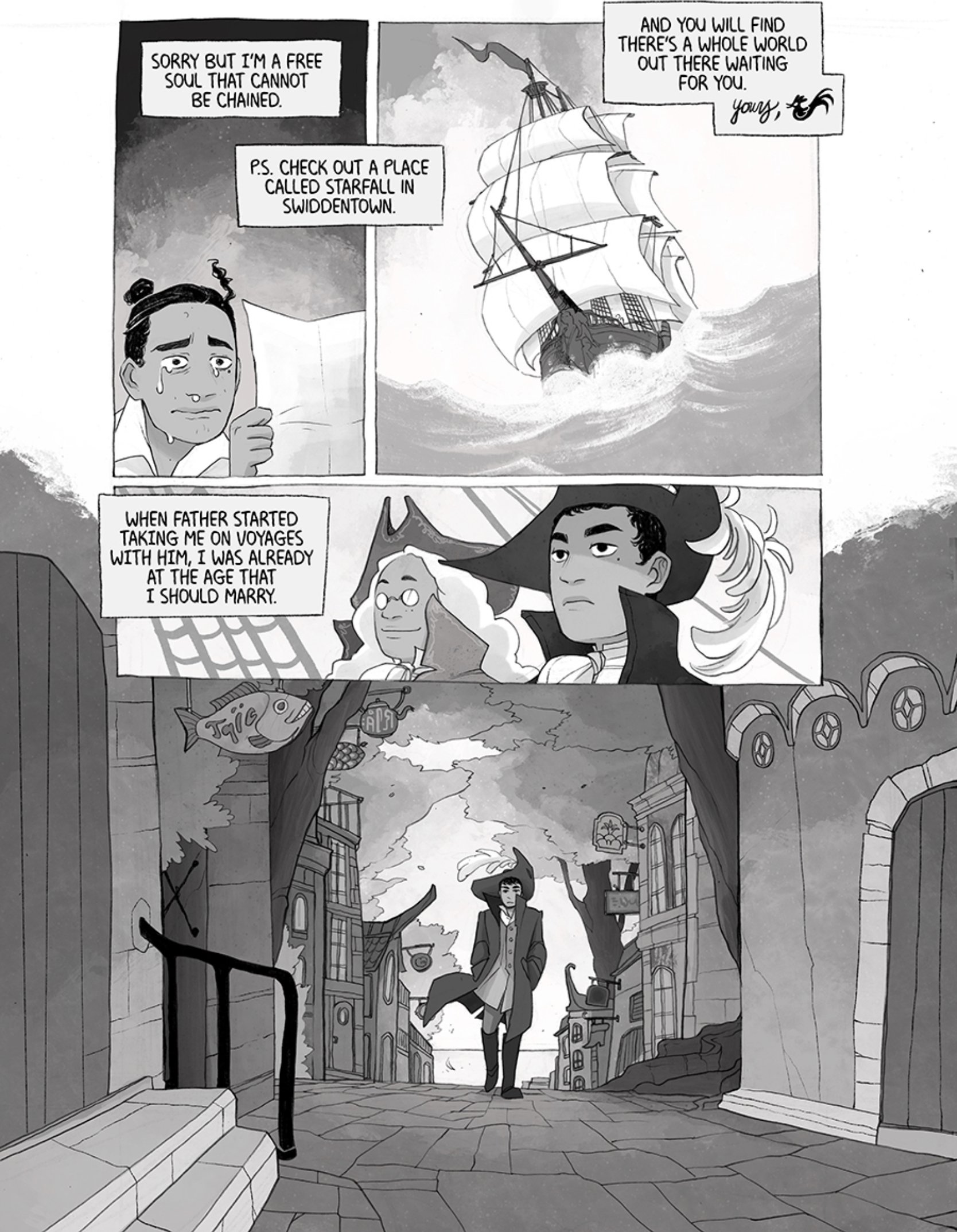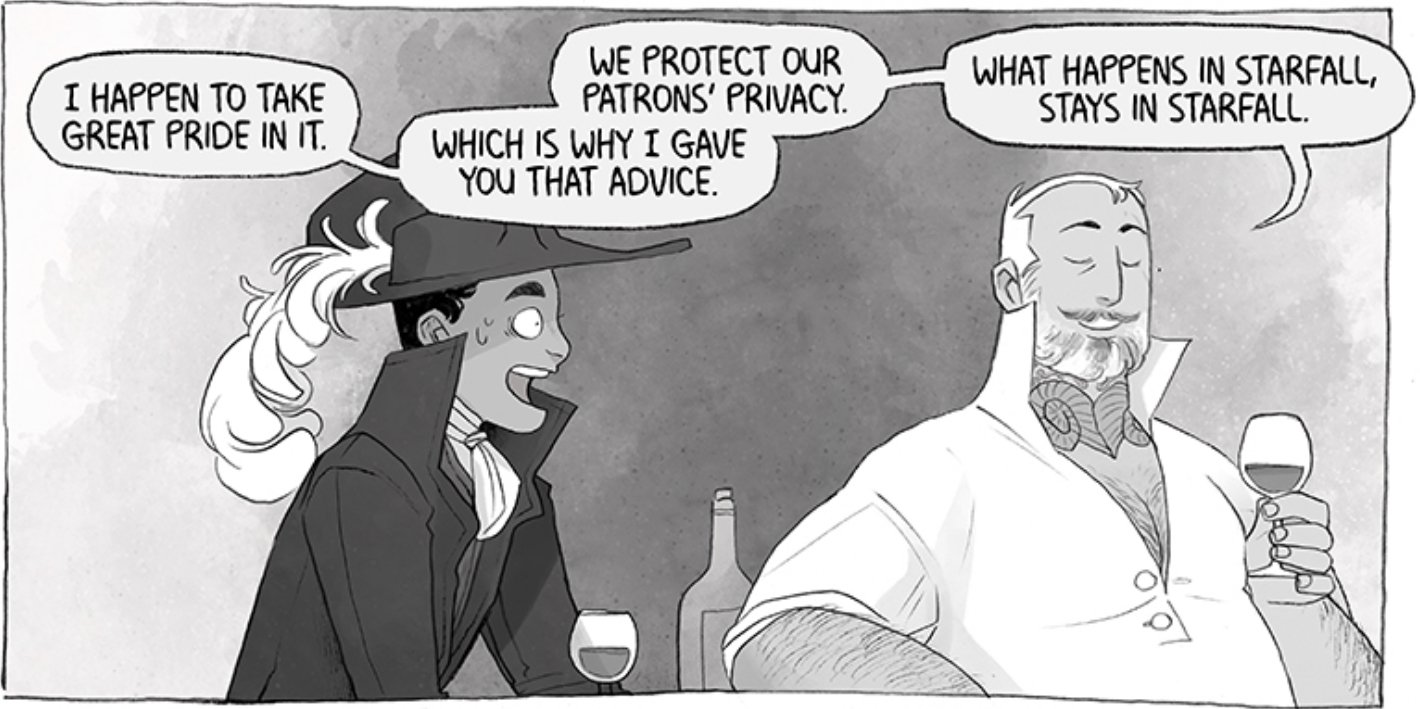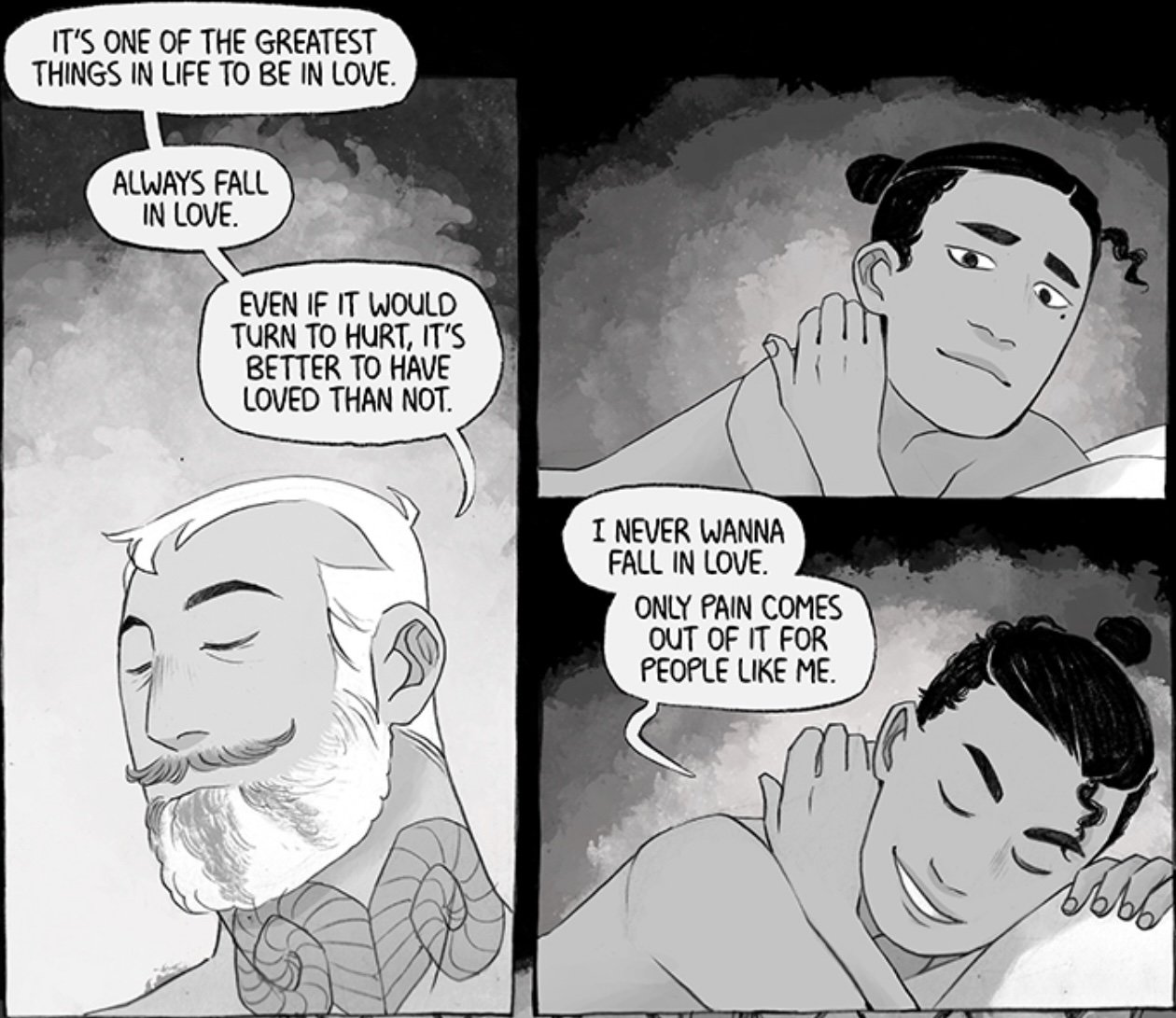Tiger, Tiger, created by Petra Erika Nordlund, tells the story of Ludovica Bonaire who steals her family ship to fulfill her wish of studying sea sponges. Ludovica is the scientifically-curious and adventure-starved heiress to a noble merchant family, and as such she is unable to travel the world to see her beloved sea sponges in the wild. With the very reclunctant aid of her arranged fiancé Jamis Arlesi, Ludovica steals her family’s ship disguised as her own brother Captain Remy Bonaire, who Jamis serves as first mate. During the journey, Ludovica discovers Remy’s diary and whole new side to Remy he has kept to himself.
What changes do gay relationships bring to Remy’s life?
Remy Bonnaire, heir of the Bonnaire family and current captain of the Gallant, the family ship. A seasoned world traveller and a steadfast captain respected and trusted by his crew. A doting brother to his younger sister Ludovica, no matter how peculiar she and her interests are. All in all, Remy is surrounded by a myriad of people who he cares for, and yet he keeps himself at arms’ length to shield an essential part of who he is. This all-too familiar scenario is one that many queer people can identify with. Whether due to fear of rejection or uncertainty over how others may react, many queer people live a good chunk of their youth feeling completely alone. As societal expectations and beliefs force people in the closet, and emotional and mental maturity have yet to fully develop, the chances of meeting others like you before adulthood can be incredibly rare in some circles. Because of this, many queer people may feel that they haven’t been allowed to live until they have the agency to venture out and allow themselves to live their truth.
Credit: Petra Erika Nordlund
A four-panel page.
First panel: Remy holds a letter close to his face. His eyes are tear-filled, his nose is running, and his lips trembling.
The Rooster (off-panel): Sorry but I’m a free soul that cannot be chained.
P.S. Check out a place called Starfall in Swiddentown.
Second panel: An establishing shot of The Gallant at sea.
The Rooster (off-panel): And you will find there’s a whole world out there waiting for you. Yours, [drawing of a Rooster]
Third panel: A close-up of Remy and his father on deck.
Remy: When Father started taking me on voyages with him, I was already at the age that I should marry.
Fourth panel: Remy walks down a Swiddentown road. It is completely deserted and all the closed establishments flank in on either side.
Remy’s journey of self-discovery may seem familiar to many readers. He is a person that, to a certain degree, knew they were different from a very young age, who societal pressures then forced to keep his same-sex attraction and desires to himself. This oppression, while incredibly overbearing, can only do so much. Remy knows full-well where his interests lie and makes his fencing instructor the first object of his adolescent desires. While this man — an openly-queer swordsman candidly called The Rooster — regrettably rejects him, Remy can admit to himself that his feelings mostly came from that feeling of youthful loneliness. The Rooster was the only gay man he knew, so he played into the student-teacher trope in order to find a narrative to belong to. Ultimately, this is what Remy was looking for, a sense of belonging that was truly his, one outside his role in his family and crew. Even though The Rooster’s rejection was a blow for Remy, his former teacher pointed him in the right direction, to a place where Remy could find others like themselves to learn from.
Credit: Petra Erika Nordlund
A single panel.
Remy and Arno share a bottle of wine. Arno is confidently speaking to Remi as the latter is completely stunned.
Arno: I happen to take great pride in it. Which is why I gave you that advice. We protect our patrons’ privacy. What happens in Starfall, stays in Starfall.
Credit: Petra Erika Nordlund
A three-panel page.
First panel: A close-up of Arno, eyes closed, as he imparts wisdom to Remy.
Arno: It’s one of the greatest things in life to be in love. Always fall in love. Even if it would turn to hurt, it’s better to have loved than not.
Second panel: A close-up of Remy in bed, as he looks at Arno (off-panel). Remy’s right hand is cupping the back of his neck, and he has a sad smile on his face.
Third panel: Remy closes his eyes and smiles as he counters Arno’s opinion.
Remy: I never wanna fall in love. Only pain comes out of it for people like me.
A deeply-rooted and recurring theme in queer stories is that of found families. It is one that creators and readers find themselves gravitating to time and time again and, because of this, it has been written about in this blog plenty of times. While the theme is often interpreted as discovering a group of like-minded peers to grow together with, older members also play a role in the found family system. Older generations impart knowledge, wisdom, and traditions to the younger ones, and this is what Remy found at a Swiddentown bar. Starfall is the perfect example of the classic safe space; queer-owned and run, it is the place where Remy first experienced intimacy with another man, and it became his safe haven. Its owner Arno, an older and experienced man that listens to and guides Remy, became his confidant with benefits. Arno’s multifaceted role in Remy’s life is inherently queer, so it is able to provide Remy the support that he needs in his otherwise lonely and emotionally tortured life. Thanks to The Rooster and Arno, Remy only has to worry about his unrequited love towards his first mate.


